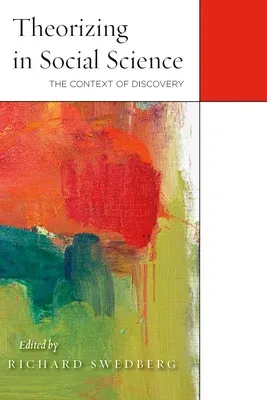Theorizing in Social Science: The Context of DiscoveryPaperback, 2 April 2014

Qty
1
Turbo
Ships in 2 - 3 days
Only 1 left
Free Delivery
Cash on Delivery
15 Days
Free Returns
Secure Checkout

Print Length
271 pages
Language
English
Publisher
Stanford Social Sciences
Date Published
2 Apr 2014
ISBN-10
0804791090
ISBN-13
9780804791090
Description
Product Details
Book Format:
Paperback
Country of Origin:
US
Date Published:
2 April 2014
Dimensions:
22.76 x
15.52 x
1.45 cm
ISBN-10:
0804791090
ISBN-13:
9780804791090
Language:
English
Location:
Stanford
Pages:
271
Publisher:
Weight:
371.95 gm